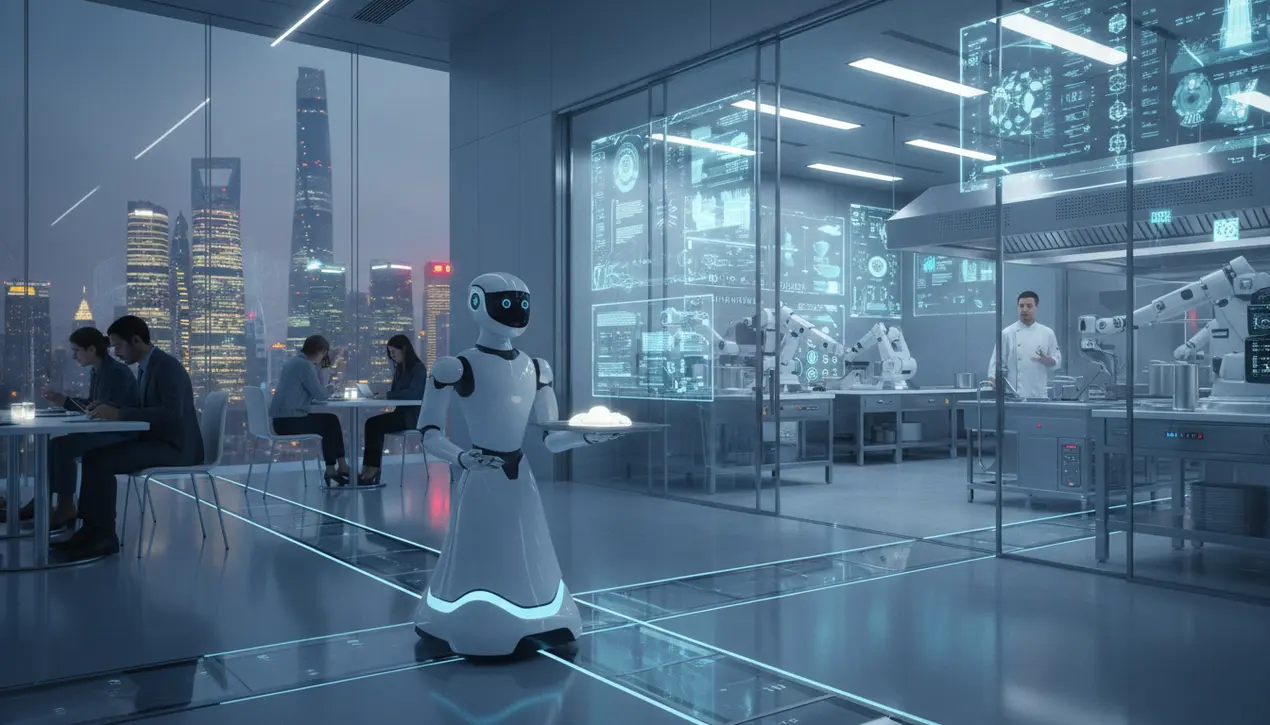
AIroboticsAI in Automation
Shanghai Pushes AI-Powered Restaurants for Future Dining.
MI
Michael Ross
2 hours ago7 min read
Shanghai is launching a full-scale culinary revolution, betting its future dining scene on a comprehensive AI ecosystem that promises to reshape the human relationship with food. The metropolis, already a global financial hub, is now aggressively pursuing a transformation of its catering sector through automated kitchens, robot servers, data-driven menus, and intelligent supply chains—a move that positions it at the forefront of a global trend but also ignites a profound debate about automation's societal role.This isn't merely about efficiency; it's a fundamental re-engineering of the restaurant experience, echoing the predictive world of Isaac Asimov's psychohistory, where large-scale human behavior becomes manageable through data. While cities like Tokyo and San Francisco have dabbled with robotic servers, Shanghai's plan is notably systemic, aiming to integrate every facet from sourcing to service.Proponents, often tech optimists, argue this addresses chronic labor shortages, enhances hygiene by minimizing human contact—a lingering post-pandemic concern—and creates hyper-personalized menus by analyzing vast datasets of consumer preferences and nutritional needs. However, this vision is fraught with the very ethical dilemmas that Asimov's Three Laws of Robotics sought to navigate.The rapid displacement of a vast workforce in the catering industry, a traditional employer, could exacerbate social inequality, creating a stark divide between the tech-savvy elite and the displaced. Furthermore, the data-driven menus, while promising optimization, raise alarming questions about privacy and the loss of culinary serendipity; will our palates become prisoners to an algorithm that only reinforces existing preferences? The intelligent supply chains, though potentially reducing waste, concentrate immense power in the platforms that control them, creating new vulnerabilities.As Shanghai charges ahead, it becomes a living laboratory, a grand experiment whose outcomes will inform global policy. The critical question isn't whether the technology is possible—it clearly is—but whether we are building a future that prioritizes human dignity and cultural richness over mere optimization and cost savings. The path Shanghai chooses will offer a crucial case study in navigating the delicate balance between technological progress and the preservation of the human elements that make dining a core social ritual.
#Shanghai
#AI restaurants
#automation
#robotics
#food service
#editorial picks news
Stay Informed. Act Smarter.
Get weekly highlights, major headlines, and expert insights — then put your knowledge to work in our live prediction markets.
Related News
Comments
Loading comments...
© 2025 Outpoll Service LTD. All rights reserved.